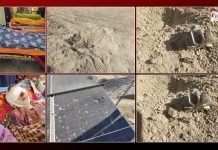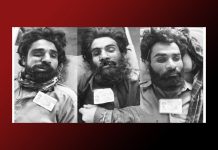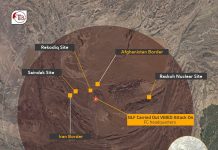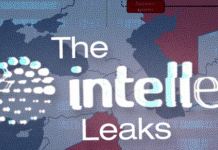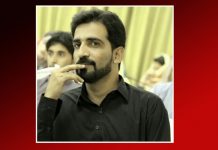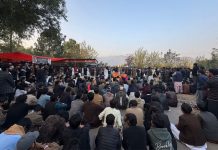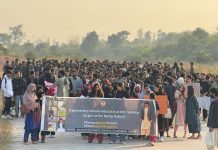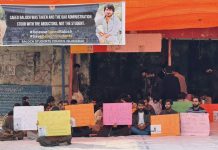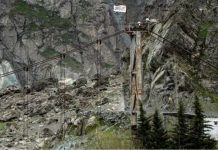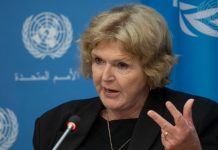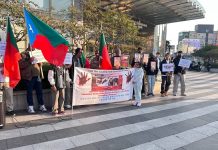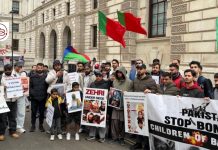Balochistan, with an abundance of mineral resources, lays in abject poverty due to mismanagement and oppression that has continued for decades. The gross unemployment and poverty in the region is one of the worst in the world.
Due to very scarce employment opportunities, thousands of Baloch youth, many with university degrees, are forced to earn their livelihoods through “smuggling” oil or diesel in Zamyad vehicles. This might be “smuggling” for the authorities, but for those involved in the trade it is the only business that will earn them an income.
The oil is transported through the Goldsmid line, that divides historical Balochistan between Iranian and Pakistani administrated areas. The Goldsmid line is considered an arbitrary line by Baloch nationalists on both sides of the border, and they reject the resulting administrative partition.
Thousands of households in several districts along this border depend on the risky oil transportation to earn a livelihood. However, these traders are treated dreadfully by border security forces of both Iran and Pakistan. Though the security forces earn substantially by imposing fines or forcing the traders to pay bribes, yet these traders are victims of brutality on continuous basis.
One such incident occurred on Monday 22nd February. Thousands of such traders had been struck for two days at border between Haq Abad on Iranian side and Parom on Pakistani side due to the unannounced closure of border. Closures for a shorter duration are common but the traders were agitated this time after their supplies ran out. A small protest broke out at the Iranian side of the border.
However, a very heavy-handed and irresponsible approach was adopted by the Iranian forces and hundreds of live rounds were fired into the protesting traders. More than a dozen Baloch people, belonging to both sides of the border, lost their lives and several others were injured. Some accounts claim the number of victims is much higher, however, this cannot be verified due to scarce venues of information on the Iranian side.
The brutal act sparked protests in many cities, where roads were blocked, and Iranian forces’ vehicles were burnt down. The protestors also stormed the Governor’s office in Sarawan city on Tuesday. Protests in some cities continued on Wednesday too.
The incident was condemned by Baloch on both sides of the border. Baloch National Movement (BNM), a nationalist political party of Eastern Balochistan, strongly condemned the act saying that the firing on innocent people by border forces is a clear barbarism and a serious violation of the rights of the people divided between borders, the elements involved must be punished.
Similarly, an influential figure of Western Balochistan and the head of Darul Uloom in Sistan and Baluchistan, Maulana Abdul Hameed, condemned the killing of oil traders by Iranian forces and said that such measures were a total violation of the law.
The recent incident is not an isolated event, Baloch living in the bordering towns have complained of such brutalities for decades. Installation of fences on both sides has divided scores of families, making it impossible for them to see their loved ones. Those crossing the border are mistreated and beaten up for petty reasons.
Locals claim that while Iranian border forces repeatedly fire into the populated bordering towns of Western Balochistan, the Pakistani security forces target innocent traders and drivers on daily basis.
The treatment at the hands of security forces from both countries has boosted pro-independence aspirations in these areas. Several armed and unarmed outlets on both sides of borders have been advocating for outright independence from both Iran and Pakistan for decades.
Many organisations have demanded visits by independent international investigative bodies to ascertain the facts. There is undoubtedly an urgent need of check and balance on the behaviour of border security forces. The Baloch have been owners of this region for centuries and they should not be treated as second class citizens on their own land.





